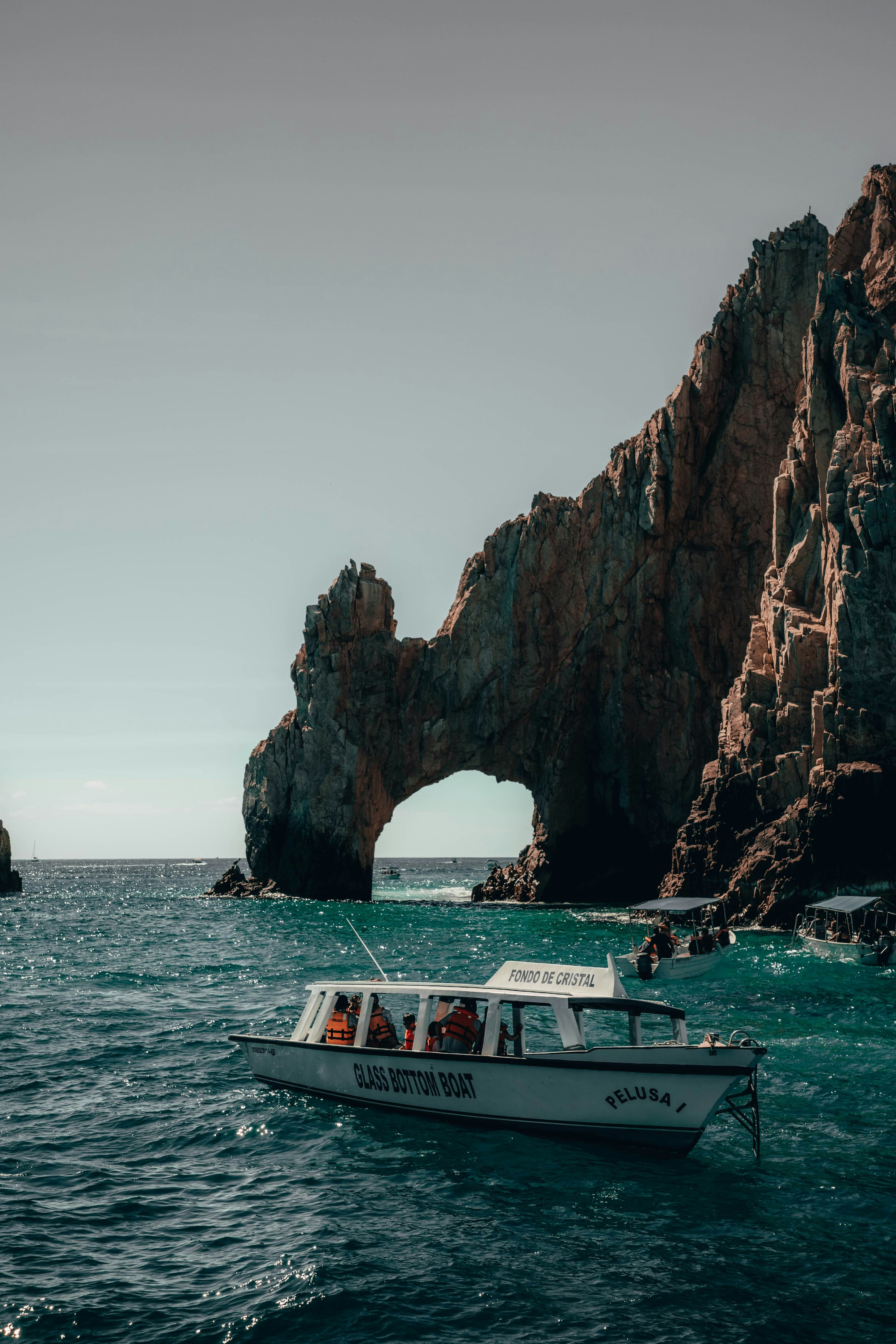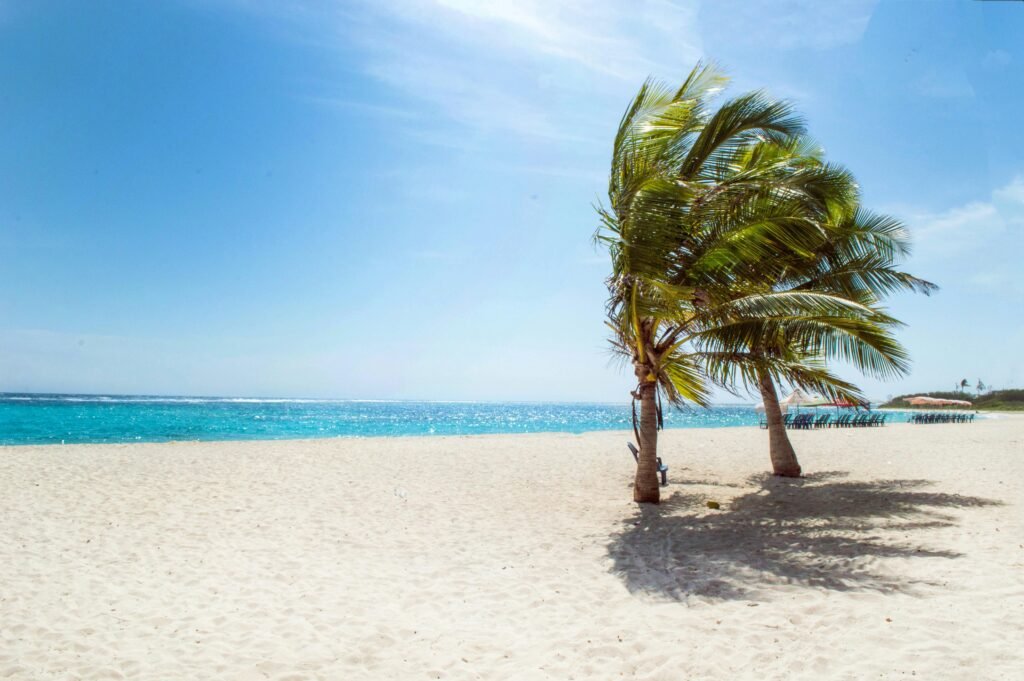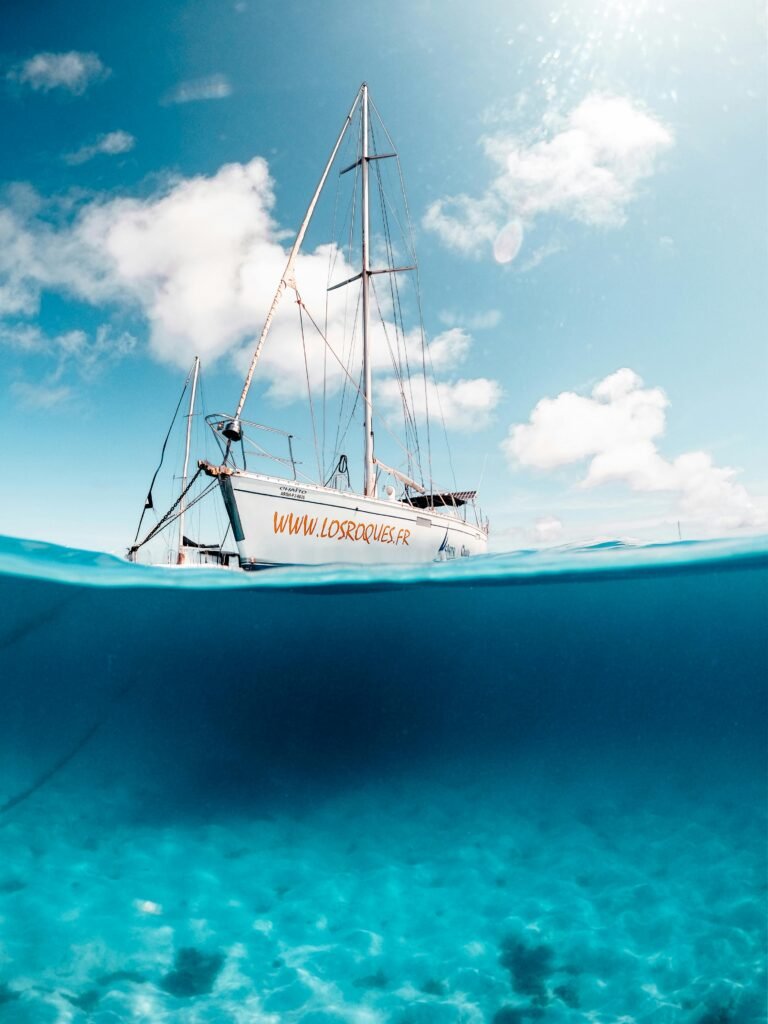Introduction to Los Roques Archipelago

Los Roques Archipelago, an exquisite treasure in the Caribbean Sea, is located approximately 80 miles (130 kilometers) north of the Venezuelan mainland. This national park encompasses over 300 islands and cays, each offering breathtaking landscapes and diverse ecosystems. The archipelago is renowned for its crystal-clear turquoise waters, white sandy beaches, and a thriving marine environment, making it an attractive destination for eco-tourism and water sports enthusiasts.
The unique geography of Los Roques contributes significantly to its allure. The islands are characterized by varying sizes and shapes, with some being uninhabited and showcasing pristine natural beauty. The coral reefs surrounding the islands promote rich biodiversity, serving as a habitat for numerous fish species, sea turtles, and other marine life. This ecosystem is not only vital for maintaining environmental balance but also offers exceptional snorkeling and diving opportunities for travelers wishing to explore its underwater secrets.
As a national park, Los Roques Archipelago is dedicated to conservation efforts that protect its delicate ecosystems and promote sustainable tourism. The ongoing initiatives aim to preserve the unique wildlife and landscapes that attract visitors from around the globe. For those seeking a tranquil escape from the bustle of more commercialized tourist destinations, Los Roques provides an idyllic retreat where travelers can immerse themselves in untouched nature, indulge in water-related activities, or simply relax on its serene beaches untouched by development.
In essence, Los Roques Archipelago represents a hidden paradise. Its geographical location, exceptional beauty, and commitment to environmental preservation make it a compelling destination for those in search of adventure and relaxation within the Caribbean’s untouched wonders.
The Natural Splendor: Turquoise Waters and White Sands
The Los Roques Archipelago is a remarkable gem in the Caribbean, celebrated for its breathtaking natural scenery. With its crystal-clear turquoise waters, the archipelago offers a visual feast that captivates visitors at first sight. The vibrant hues of the ocean, ranging from deep blue to inviting aquamarine, create a striking contrast against the pristine white sandy beaches. These idyllic shores are not only a haven for relaxation but also serve as ideal spots for sunbathing, swimming, and indulging in various water sports.

As one strolls along the soft sands, the serene environment envelops them, providing an escape from the hustle and bustle of everyday life. The gentle sound of the waves lapping at the shore, combined with the warm Caribbean breeze, fosters a sense of tranquility that is hard to find elsewhere. Each beach within the archipelago has its own unique charm, inviting exploration and adventure. Whether one seeks solitude or social interaction, Los Roques offers a variety of beaches to suit every preference.
Moreover, the natural splendor of Los Roques extends beyond its surface beauty. The waters teem with rich biodiversity, making it a popular destination for snorkeling and diving enthusiasts. Coral reefs flourish beneath the crystalline waters, providing a habitat for an array of marine life, including colorful fish, sea turtles, and various species of mollusks. On land, the islands are home to numerous bird species, adding to the area’s ecological richness. This delicate balance between land and sea showcases the breathtaking allure of Los Roques, positioning it as a true hidden paradise in the Caribbean.
Unforgettable Coral Reefs: The Underwater Wonderland
The Los Roques Archipelago is renowned for its stunning coral reefs, which create an underwater wonderland that draws marine enthusiasts from around the globe. These vibrant ecosystems foster an incredible diversity of marine life, supporting myriad species including colorful fish, graceful sea turtles, and an array of invertebrates. The clear turquoise waters surrounding the archipelago provide unparalleled visibility, making it an ideal destination for snorkeling and diving adventures.

Snorkelers can expect to encounter a kaleidoscope of fish species as they glide through the coral gardens. Parrotfish, angelfish, and clownfish are often spotted amidst the vibrant corals that serve as their habitat. The reefs are teeming with life, providing visitors with a chance to witness the delicate balance of this underwater environment. Moreover, divers have the opportunity to explore deeper sections of the reefs, where larger marine species such as eagle rays and reef sharks can be observed.
Some of the best snorkeling and diving locations in Los Roques include Cayo de Agua and Francisqui. Cayo de Agua is famous for its rich biodiversity and picturesque shallow waters, ideal for both beginners and experienced snorkelers. For those looking for a more adventurous diving experience, Cape de la Tortuga offers a chance to explore expansive underwater structures and encounters with larger marine fauna. Guided tours are available, which ensure safety and enhance the overall experience by providing insights into the marine ecosystem.
Overall, the coral reefs of Los Roques provide an unforgettable opportunity to engage with a vibrant underwater world. They not only offer stunning visual experiences but also highlight the importance of ecosystem conservation, ensuring that these hidden paradises can be enjoyed by future generations. In conclusion, exploring the marine life around Los Roques is an essential aspect of experiencing the archipelago’s unique charm.
Island Hopping: Best Islands to Visit in Los Roques
Los Roques Archipelago, an enchanting tropical paradise in the Caribbean, invites visitors to explore its array of stunning islands, each boasting unique features and experiences. A quintessential activity for travelers is island hopping, which allows them to discover the charm and diversity of this archipelago. Among the various islands, Gran Roque, Cayo de Agua, and Crasqui stand out as must-visit destinations.
Gran Roque serves as the archipelago’s principal island and is the ideal starting point for any exploration. With its vibrant local community and picturesque streets, visitors can immerse themselves in the laid-back Caribbean lifestyle. For accommodation, Gran Roque offers a range of options, from boutique hotels to cozy guesthouses, ensuring that travelers find the perfect fit for their needs. The island is renowned for its water sports, including kite surfing and snorkeling in the crystalline waters, allowing everyone to appreciate the rich underwater ecosystem.
Cayo de Agua is often heralded for its striking beauty and isolation. This small island features pristine beaches lined with powdery white sands and crystal-clear waters, making it perfect for relaxation and sunbathing. Cayo de Agua is also home to the famous “Cayo de Agua Sandbar,” which emerges during low tide, transforming the landscape into a breathtaking panorama. Visitors can engage in activities such as fishing and swimming in the serene waters or simply enjoying the tranquil environment that Cayo de Agua provides.
Lastly, the island of Crasqui presents an idyllic setting for nature enthusiasts. Boasting lush vegetation and inviting beaches, Crasqui is an excellent spot for hiking and exploring its natural beauty. The island also features ample opportunities for beach-combing and bird-watching, making it particularly appealing for eco-tourists. Accommodations here are simpler but welcoming, offering an informal atmosphere conducive to relaxation.
In conclusion, island hopping through the Los Roques Archipelago delivers a wealth of experiences across its breathtaking islands. From the vibrant community in Gran Roque to the tranquil beauty of Cayo de Agua and the natural allure of Crasqui, each destination offers its own slice of paradise waiting to be discovered.
Travel Tips for Visiting Los Roques
When planning a trip to the stunning Los Roques Archipelago, timing can significantly enhance your experience. The best time to visit is during the dry season, which typically lasts from November to June. During these months, you’ll enjoy sunny skies and minimal rainfall, making your island-hopping adventures more enjoyable. It is advisable to check weather conditions as they can vary, and ensure that your travel plans align with the optimal climate.
Packing light but effectively is essential for a visit to Los Roques. Given the warm, tropical climate, breathable clothing made from cotton or linen is recommended. Swimwear, sunscreen, and a good pair of water shoes can make beach excursions more comfortable. Additionally, don’t forget to bring a hat and sunglasses to protect yourself from the intense sun. If you plan on engaging in water sports or activities like snorkeling, consider packing your gear, although rentals are often available on the islands.
Understanding cultural etiquette is important when visiting Los Roques. Engage with the local community respectfully, greeting locals with a friendly “buenos días” or “buenas tardes.” Local customs should be observed, especially in terms of dress codes; wearing swimsuits outside of the beach is typically frowned upon. As Los Roques is primarily residential, embracing simple, considerate behavior can greatly enhance interactions with the residents.
In terms of costs, it is important to plan a budget. Los Roques can be a relatively expensive destination compared to mainland Venezuela due to its isolated location and limited resources. Accommodations range from modest guesthouses to luxurious resorts, catering to various budgets. While prices can vary significantly, advanced reservations are advisable to secure favorable rates. Be prepared to spend on ferries and local transportation, as these will be essential for navigating between islands. Overall, with proper planning and consideration, a trip to Los Roques can be a rewarding experience filled with unforgettable moments.
Getting There: Safe Travel to Los Roques
Reaching the stunning Los Roques Archipelago involves a few essential travel considerations, ensuring a safe and enjoyable journey to this hidden paradise. The main access point is from Caracas, the capital of Venezuela. Regular flights connect Caracas to Los Roques, with both commercial airlines and charter services available. It is advisable to book flights through reliable airlines that have established a reputation for safety and efficiency. Travelers should verify the schedules and book in advance, especially during peak seasons, when demand can exceed supply.
Once in Caracas, travelers will need to navigate through the local airport to board their connecting flight to Los Roques. It is essential to arrive early at the airport, as security checks can take time, and flights may experience delays. Confirming flight details and local customs is another vital step; it is beneficial to familiarize oneself with the baggage policies and travel restrictions to avoid any inconveniences.
Upon arrival in Los Roques, transportation to accommodations or activities is typically organized via local boats or water taxis. Travelers can arrange these services as part of their accommodation bookings or directly upon arrival at the airport. It is strongly recommended to use reputable services to guarantee safety and reliability.
To enhance the travel experience, being aware of local customs and cultural norms can significantly improve interactions with locals and other travelers. Staying informed about current travel advisories related to Venezuela helps further assure a safe trip. Following these travel tips, prospective visitors can have peace of mind navigating their way to Los Roques and immersing themselves in its breathtaking beauty.
Water Sports and Activities: Adventure Awaits
The Los Roques Archipelago presents an extensive array of water sports and activities that appeal to adrenaline seekers and leisure enthusiasts alike. With its stunningly clear waters and immaculate sandy beaches, the archipelago becomes an adventure hub for visitors looking to explore its aquatic offerings. Kitesurfing stands out as a popular choice among thrill-seekers, thanks to the consistent winds and expansive flat-water lagoons. Novice and experienced kitesurfers can both find suitable spots to hone their skills and enjoy the exhilarating rush of gliding over water.
For those seeking a more relaxed experience, paddleboarding is an excellent option. This tranquil sport allows participants to glide effortlessly over the azure waters while taking in the picturesque surroundings. Paddleboarding tours often guide participants through secluded bays, providing an opportunity to observe the remarkable marine life and stunning coastlines that define Los Roques.
Moreover, the archipelago is not solely about water activities. Hiking and birdwatching present unique alternatives for visitors eager to explore the islands’ natural beauty. Numerous trails wind through the lush landscapes, offering breathtaking views of the surrounding islets and inviting explorers to discover hidden gems. Birdwatching enthusiasts will find a wealth of opportunities, as Los Roques serves as a vital habitat for various migratory and endemic bird species. These activities foster a deeper appreciation for the environment and allow visitors to connect with nature.
Ultimately, the diverse range of water sports and activities available in Los Roques ensures that there is something for everyone. Whether one is in search of adrenaline-pumping adventures or serene encounters with nature, Los Roques Archipelago delivers an unforgettable experience that resonates with all types of adventurers.
Culinary Delights: Dining in Los Roques
Los Roques Archipelago is not just a feast for the eyes but also a gastronomic delight that showcases the rich culinary heritage of Venezuela. The local cuisine primarily revolves around fresh seafood, given the archipelago’s close proximity to the Caribbean Sea. Visitors can expect to savor a variety of traditional dishes that highlight the region’s natural bounty. Among the most popular offerings is the ‘pescado frito,’ a delicately fried fish, usually served with a side of coconut rice and fried plantains. This dish exemplifies the simplicity and freshness that characterize the dining experiences in Los Roques.
Seafood enthusiasts will also appreciate the ‘camarones al ajillo,’ or garlic shrimp, which are thoughtfully prepared using locally sourced ingredients. Other local specialties include ‘arepas’—cornmeal cakes often stuffed with various fillings like shredded beef, cheese, or avocado. These versatile creations can be found in many dining spots across the archipelago, providing a comforting taste of traditional Venezuelan flavors that appeal to both locals and tourists alike.
Conservation and Responsible Travel in Los Roques
The Los Roques Archipelago, characterized by its stunning landscapes and rich biodiversity, serves as an exemplary model of how natural wonders can be preserved through responsible travel practices. The delicate ecosystems within this paradise face several threats, including overfishing, habitat destruction, and pollution. Therefore, conservation efforts are essential to maintain the region’s remarkable beauty and ecological integrity. Engaging in responsible travel is paramount for visitors who wish to enjoy the archipelago while safeguarding its natural environment.
One of the most significant aspects of responsible travel in Los Roques involves respecting local wildlife and their habitats. Tourists should refrain from disturbing marine life, such as sea turtles and dolphins, which are vital indicators of the overall health of the ecosystem. Simple actions, such as observing wildlife from a distance and not collecting shells or coral, can significantly contribute to the preservation of these species. Additionally, travelers are encouraged to educate themselves about the flora and fauna of the archipelago, enhancing their appreciation and understanding of the delicate balance within this ecosystem.
Participation in eco-friendly tours also plays a crucial role in conserving the natural environment of Los Roques. Many local tour operators offer sustainable travel options that prioritize minimizing environmental impact. Opting for these eco-conscious excursions can significantly benefit the region while providing visitors with unforgettable experiences. Such tours often include snorkeling in protected areas, where tourists can marvel at vibrant coral reefs without causing harm. Moreover, choosing to support local businesses that adhere to sustainable practices can help ensure the long-term viability of the community and its stunning surroundings.
In conclusion, promoting conservation and responsible travel practices in Los Roques is essential for preserving its breathtaking beauty and biodiversity. By respecting local wildlife, engaging in eco-friendly tours, and supporting sustainable initiatives, travelers can contribute positively to the preservation of this hidden paradise.
